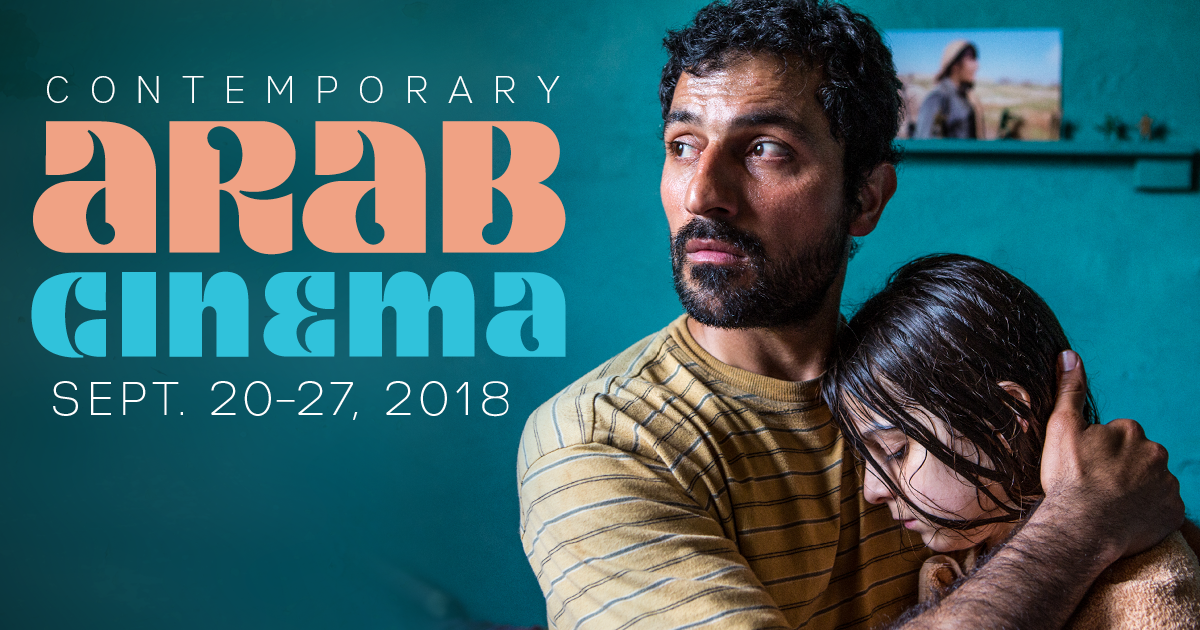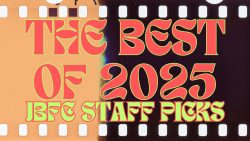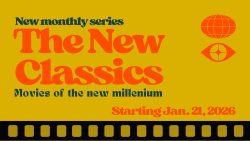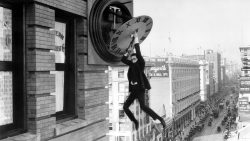Posted September 13, 2018
JBFC Mixtapes, Vol. 10: Contemporary Arab Cinema
JBFC Mixtapes is an initiative from the Burns to highlight the music—from soundtracks to scores—that makes the cinematic experience so special. Our tenth installment comes from Lina Matta, curator of our annual Contemporary Arab Cinema series, who put together a playlist that’s every bit as diverse and engaging as the series itself. Lina Matta is a Lebanese-American based in Dubai. She is the director of MBC Group’s TV channels 2, 4, Max, and Variety. She has programmed this series for the JBFC since 2012.
Listen to Lina’s mix now on Spotify below (or save the playlist to listen offline later!), then read through her explanation of each track below.
- “كاظم الساهر-قولي احبك مع کلمات,” by Kathem El Saher: Iraqi born, Kathem El Saher is known as the ‘Caesar of Arabic song.’ He formed a partnership with the Lebanese poet Nizar Qabbani, who ended up writing 30 songs for him. Qabbani is most known for writing poems on love, eroticism, and feminism. The romance of Kathem is the antithesis of our present day image of Iraq.
- “Arabiyon Ana,” by Yuri M’rekadeh: Since the Contemporary Arab Cinema series is called ANA, i.e. “I,” I thought it appropriate to choose a song that opens with a man proclaiming “I am an Arab” then launches into the romance of what it would be like for a woman to fall in love with an Arab man.
- “An el Awan,” by Warda Al-Jazairia: Warda, i.e. “the Algerian,” was born in France. Her father was Algerian and her mother Lebanese. The family was deported from France and moved to Lebanon, where Warda become famous for her Egyptian songs.
- “Azza,” by Mirwais: Swiss born Mirwais, whose father is Afghani and his mother Italian, collaborated on what he labeled “Arabic Avant-garde” music with the Paris-based Lebanese Singer Yasmine Hamdan. The lyrics are of someone coaxing another further and further into daring acts, while the other rejects, but the listener realizes that she will soon succumb. The mood is evocative of the generation of characters in the movie Listen, which screens Thursday, 9/27 at the JBFC.
- “Betwanas Beek,” by Warda: A Warda classic. “Betwanas beek” means “I enjoy your presence.” A woman singsto her lover about cherishing his presence, whether he is with her or not.
- “Enty (feat. DJ Van),” by Saad Lamjaared: A new generation Moroccan pop singer who came to the world’s attention by winning second place in the talent show Super Star in 2007.
- “A Man,” by Mirwais: Plays on the different accents in the Arab world, like Louis Armstrong and Ella Fitzgerald in their “You Say Tomato, I Say Tomato.”
- “Get it Right,” by Mirwais: The song counts up to 12, which is the amount of films I bring to ANA Contemporary Arab Cinema series every year.
- “Kifach Hilti,” by Djamel Laroussi: Laroussi is an Algerian singer, composer, songwriter. He sings in Algerian Arabic, French and Kabyle Berber
- “Nihna Wil Amar Jeeran,” by Feyrouz: Feyrouz is the most loved and admired singer in the Arab world. She is synonymous with Lebanon. Here she sings about being neighbors with the moon who knows all her secrets. It is one of my mother’s favorite songs.
- “Salama ya Salama,” by Dalida: Dalida was born and raised in Egypt to Italian parents. She became a huge superstar, singing in French and Italian. Towards the end of her career she ‘went back to her roots’ and recorded some Arabic songs. This one is about having toured the world and come back to her first love.
- “Zorouni” by Rachid Taha: The French Algerian singer, who died in his sleep on Sept. 12, 2018, introduced the world to the song “Ya Rayeh.” His style was Algerian Rai music with electronic rock. This is the original version of the song by Dahmane El Harrachi. I dedicate it to the man who took Algerian music to the international stage.
- “Yalli,” by Yasser: “The one who is far from my eyes;” Egyptian pop.
- “Yom Wara Yom (Day after Day),” by Samira Said: Said is a Moroccan-Egyptian pop singer.
Want more media like this? Tickets for JBFC annual series Contemporary Arab Cinema are on sale now! The series runs Sept. 20–27, and is presented with generous support from the Agnes Varis Trust and the National Endowment for the Arts. Secure your seats today!



